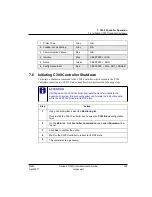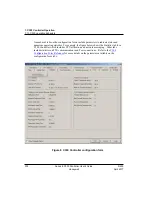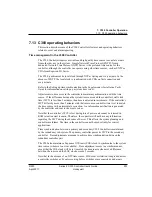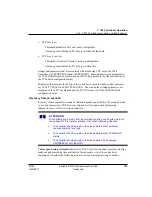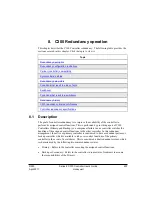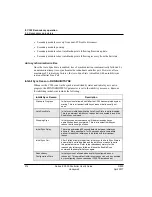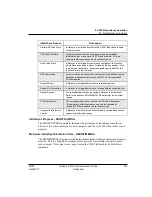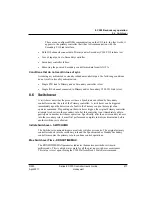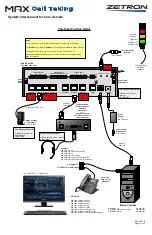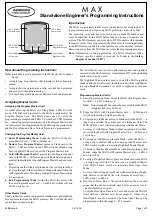
204
Series 8 C300 Controller User's Guide
Honeywell
R500
April 2017
7. C300 Controller Operation
7.14. C300 Controller processing overload behavior
If the scheduled processing for a cycle is completed in more than 85% and less than
100% of the base cycle time, then cycle overrun will be logged and next cycle will be
skipped.
If the scheduled processing for a cycle is completed in more than 100% and less than
150% of the base cycle time, then unbudgeted tasks will be executed during the
remaining 50+ % time. Next cycle will continue scheduled processing.
If the scheduled processing for a cycle is completed in more than 150% of base cycle
time next cycle will be skipped.
Cycle overruns in the controller result in that control degrades gracefully, in terms that
the latency in control loops increases. Also, a significant amount of processing time is
made available to the controller so that it can handle the backlog of tasks that result from
an overload.
Alarms and events are generated to alert operators to the cause of a controller overload so
that appropriate actions can be taken to remedy it.
Causes of controller overloading
Additional processing loads can be caused in many ways including, but not limited to:
Activation of additional CMs/SCMs/IOMs in the controller.
Load and activation of additional CMs/SCMs/IOMs to other controller.
Load and activation of additional CMs/SCMs to other controllers that impose added
peer-peer communication load on the controller of interest.
Call up of displays that collect data from the controller.
How to avoid controller overloading
Planning your control strategies will help to avoid overloading a C300 Controller.
Develop a performance model to determine whether or not a C300 Controller has the
resources to execute the planned strategy. Test the strategy
before
loading it to the
controller.
During operation acknowledge warning alarms associated with low values of 'CPU Free'
and overloads when control strategies are loaded incrementally to the controller. Take
appropriate steps to reduce CPU usage. Overloads also may occur when a large control
strategy is loaded at once, (such as a Checkpoint restore or a bulk load), rather than
incrementally.
The C300 block supports the following diagnostic alarms related to CPU Free:




